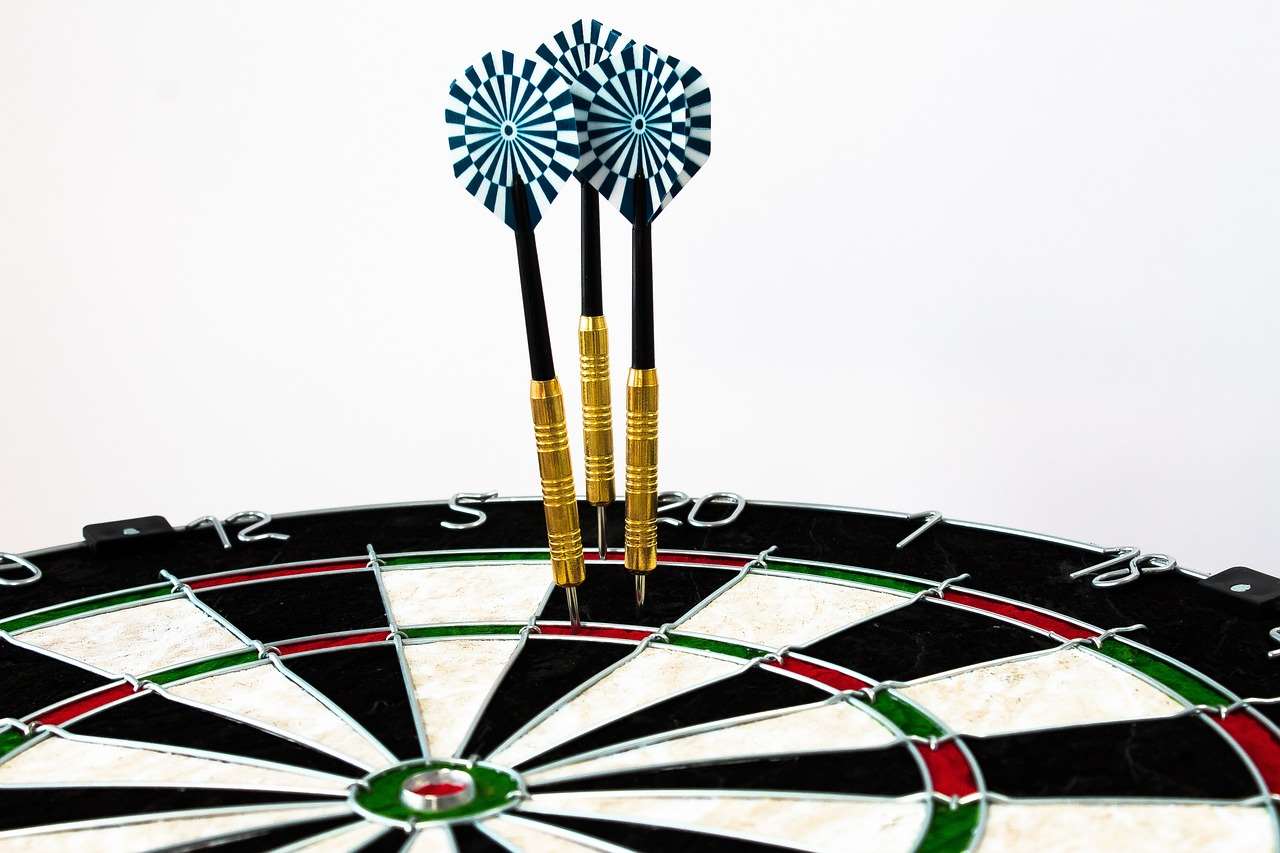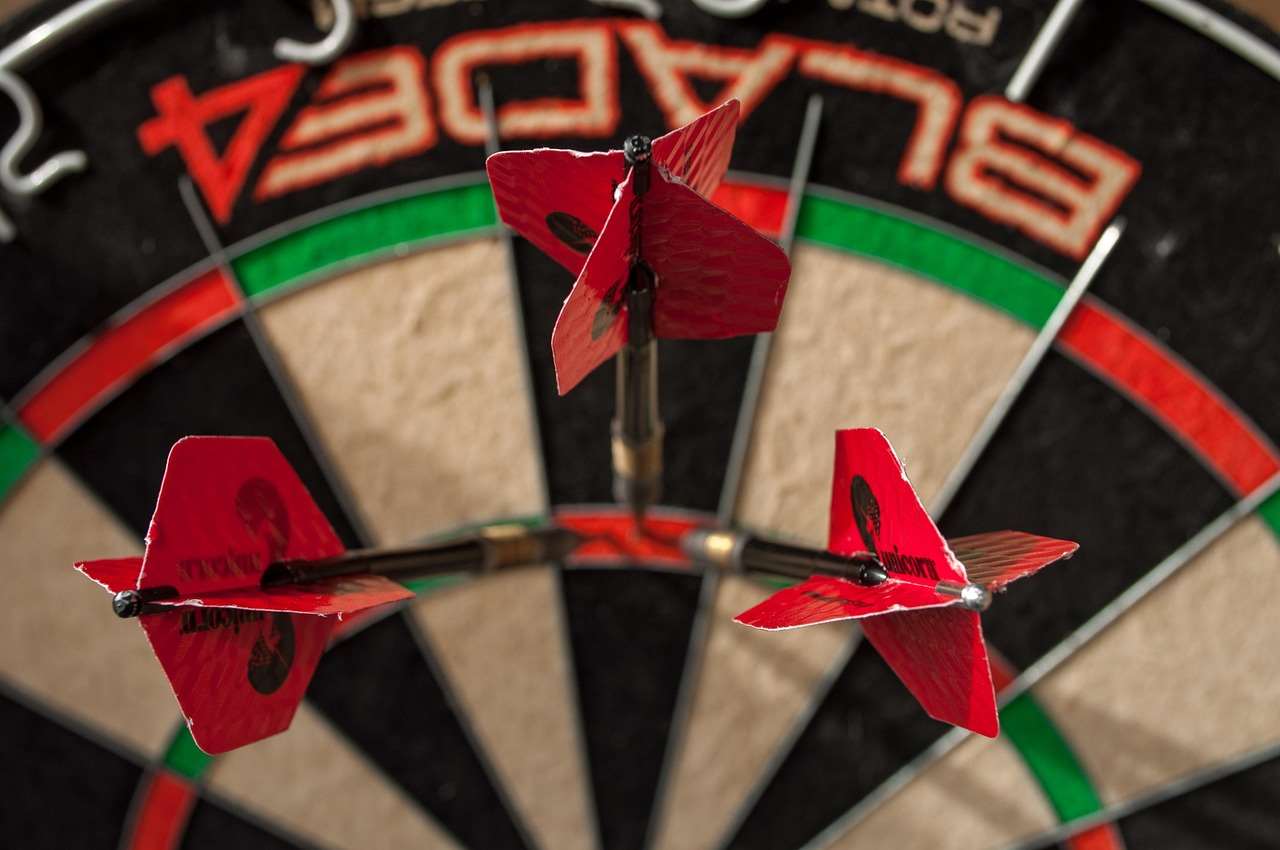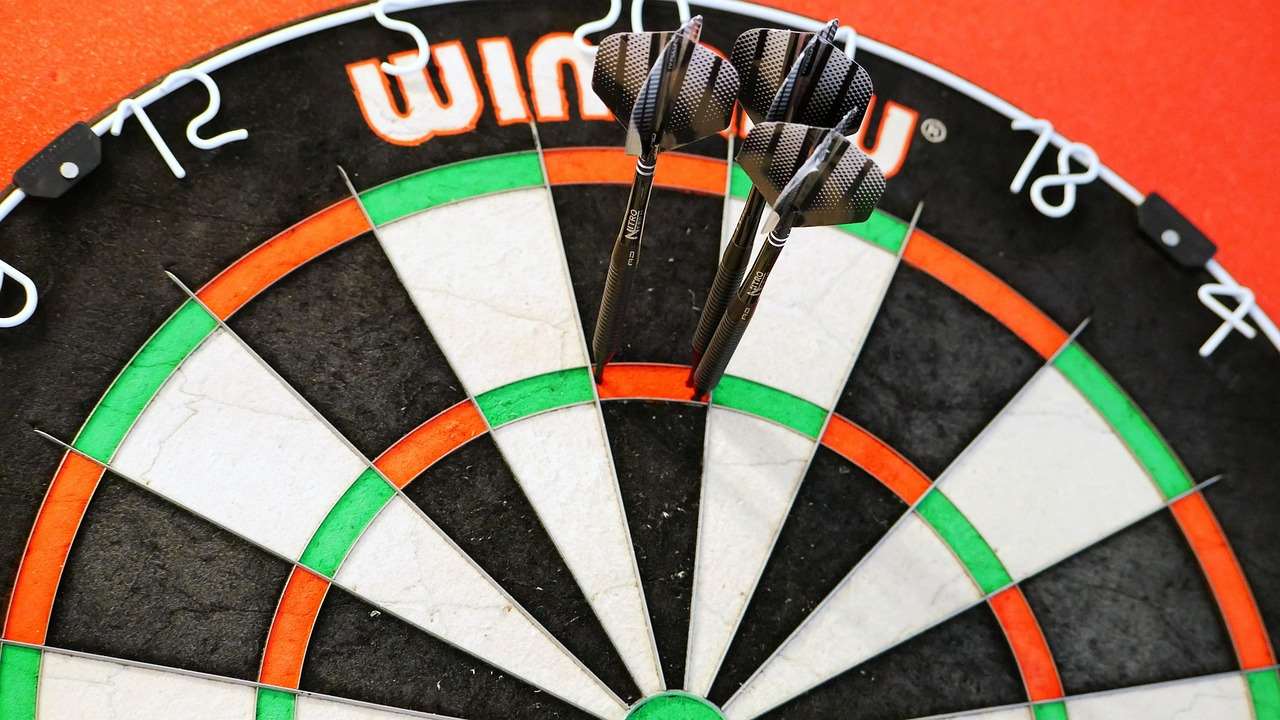Understanding darts etiquette by governing bodies is crucial for maintaining a respectful and enjoyable playing environment, ensuring fair play, and upholding the integrity of the sport. This article explores the unwritten rules and formal guidelines enforced by organizations like the PDC and WDF, covering everything from player conduct to spectator behavior. You’ll learn how to conduct yourself appropriately whether you’re competing professionally, participating in a local league, or simply enjoying a casual game with friends.
⚠️ Still Using Pen & Paper (or a Chalkboard)?! ⚠️
Step into the future! The Dart Counter App handles all the scoring, suggests checkouts, and tracks your stats automatically. It's easier than you think!
Try the Smart Dart Counter App FREE!Ready for an upgrade? Click above!
Darts Etiquette By Governing Bodies: An Overview
Formal darts etiquette isn’t just about following written rules; it’s also about adhering to a code of conduct that promotes sportsmanship, fairness, and respect. Governing bodies such as the Professional Darts Corporation (PDC) and the World Darts Federation (WDF) set the standard for professional play. These guidelines trickle down to amateur leagues and even casual games, impacting how the sport is perceived and enjoyed at all levels. Darts Culture And Community Guide reinforces this concept of positive community impact.
Why Etiquette Matters in Darts
Good darts etiquette creates a positive atmosphere for everyone involved. It ensures that players are treated fairly, spectators can enjoy the game without distractions, and the sport itself maintains a respectable image. Imagine the chaos if players constantly disputed scores, heckled opponents, or behaved disruptively! Etiquette prevents this and fosters a spirit of friendly competition.

Key Areas of Darts Etiquette
Darts etiquette encompasses several key areas, including player conduct, spectator behavior, scoring protocols, and general sportsmanship. Let’s delve into each of these aspects to understand the specific guidelines and expectations.
Player Conduct: On and Off the Oche
A dart player’s conduct is judged both on and off the oche (the throwing line). Here are some crucial points:
- Respect for Opponents: Always show respect to your opponents, regardless of their skill level. Avoid making disparaging remarks or engaging in any behavior that could be construed as bullying or intimidation.
- Silence During Throws: Refrain from talking or making noise while your opponent is throwing. This is a fundamental rule of darts etiquette and shows respect for their concentration.
- Acknowledging Scores: Acknowledge your opponent’s good scores with a nod or a simple “well done.” This demonstrates good sportsmanship and recognition of their skill.
- No Distracting Behavior: Avoid any behavior that could be considered distracting, such as excessive movement, loud noises, or inappropriate gestures.
- Following the Rules: Adhere to all the rules of the game, even if you disagree with them. If you have a legitimate concern, raise it with the appropriate authorities after the match.
- Accepting Defeat Gracefully: Win or lose, accept the outcome with grace and humility. Congratulate your opponent on their victory and avoid making excuses for your performance.
These are important elements to consider when thinking about Organizing Local Darts League games.
Spectator Behavior: Supporting the Game Respectfully
Spectators also have a responsibility to uphold darts etiquette. Here are some guidelines for proper spectator behavior:
- Silence During Throws: Just like players, spectators should remain silent while a player is throwing. Any noise or movement can be incredibly distracting and disrespectful.
- Avoid Heckling: Refrain from heckling or making negative comments about the players. Cheer for your favorite players, but do so in a respectful manner.
- Respect the Players’ Space: Avoid getting too close to the oche or interfering with the players’ movement. Give them the space they need to concentrate and perform their best.
- Appropriate Celebrations: Celebrate good throws and victories, but avoid excessive or offensive behavior. Keep your celebrations within reasonable bounds and avoid antagonizing the opposing team or fans.
- Follow Venue Rules: Adhere to all the rules and regulations of the venue, including restrictions on alcohol consumption, smoking, and noise levels.
Promoting Local Darts events requires positive spectator environments.

Scoring Protocols: Accuracy and Honesty
Accurate scoring is essential for fair play in darts. Here are some key aspects of scoring etiquette:
- Clear Communication: Clearly announce your scores after each throw. This helps to avoid confusion and ensures that the score is recorded accurately.
- Verification: If there’s any doubt about the score, double-check with your opponent or a designated scorer. It’s better to take a moment to verify than to proceed with an incorrect score.
- Honesty: Never intentionally misreport your score or attempt to deceive your opponent. Honesty is paramount in darts, and any form of cheating is unacceptable.
- Accepting Judgments: Accept the judgments of the scorer or referee, even if you disagree with them. If you have a legitimate concern, raise it politely and respectfully after the match.
Sportsmanship: The Heart of Darts Etiquette
At its core, darts etiquette is about sportsmanship. This includes treating your opponents with respect, playing fairly, and accepting the outcome of the game with grace. Here are some examples of good sportsmanship in darts:
- Offering Congratulations: Congratulate your opponent on a good throw or a well-played game, regardless of the outcome.
- Helping Opponents: If your opponent is struggling, offer encouragement or advice (if appropriate). A little support can go a long way in boosting their confidence.
- Acknowledging Mistakes: Admit your own mistakes and avoid blaming others for your shortcomings.
- Maintaining a Positive Attitude: Keep a positive attitude, even when you’re facing adversity. A positive mindset can help you stay focused and perform your best.

Specific Rules and Guidelines from Governing Bodies
While general etiquette applies across all levels of darts, governing bodies like the PDC and WDF have specific rules and guidelines that professional players must adhere to. These rules cover everything from dress code to on-stage behavior.
PDC Rules and Regulations
The PDC has a comprehensive set of rules and regulations that govern all its tournaments. These rules are designed to ensure fair play, maintain a professional image, and protect the integrity of the sport. Some key areas covered by PDC rules include:
- Dress Code: Players are required to wear appropriate attire, which typically includes collared shirts, trousers, and closed-toe shoes. Jeans, shorts, and t-shirts are generally not allowed.
- On-Stage Behavior: Players are expected to conduct themselves in a professional and respectful manner on stage. This includes avoiding excessive celebrations, abusive language, or any behavior that could be considered unsportsmanlike.
- Anti-Doping Policy: The PDC has a strict anti-doping policy to ensure that all players compete fairly and without the use of performance-enhancing drugs.
- Match Rules: The PDC sets the rules for all its matches, including the format, scoring system, and regulations for disputes.
WDF Rules and Regulations
The WDF also has a set of rules and regulations that govern its tournaments. These rules are similar to those of the PDC, but there may be some slight differences. Some key areas covered by WDF rules include:
- Dress Code: The WDF also requires players to wear appropriate attire, although the specific requirements may vary depending on the tournament.
- On-Stage Behavior: The WDF expects players to conduct themselves in a professional and respectful manner on stage, similar to the PDC.
- Anti-Doping Policy: The WDF also has an anti-doping policy to ensure fair play.
- Match Rules: The WDF sets the rules for all its matches, which may differ slightly from those of the PDC.
It’s important to note these points if you decide to look at How To Start A Darts League.

Enforcement of Darts Etiquette
The enforcement of darts etiquette varies depending on the level of play. In casual games, it’s typically up to the players themselves to enforce the rules and maintain a respectful environment. In organized leagues and tournaments, there are usually designated referees or officials who are responsible for enforcing the rules and addressing any violations of etiquette.
Consequences of Violating Etiquette
The consequences of violating darts etiquette can range from a verbal warning to disqualification from a tournament, depending on the severity of the offense. In some cases, players may also face fines or suspensions. Governing bodies take breaches of etiquette very seriously, as they can damage the reputation of the sport and undermine the integrity of the competition.
Creating a Culture of Respect in Darts
Ultimately, the best way to ensure good darts etiquette is to create a culture of respect within the darts community. This involves promoting sportsmanship, educating players and spectators about the rules and guidelines, and holding individuals accountable for their actions. By fostering a positive and respectful environment, we can all contribute to making darts a more enjoyable and rewarding sport for everyone involved. This is even more important when considering Recruiting Members Darts League Club.

Tips for Practicing Good Darts Etiquette
Here are some practical tips for practicing good darts etiquette in all your games:
- Be mindful of your behavior: Pay attention to how your actions might affect others.
- Show respect to your opponents: Treat them with courtesy and consideration.
- Follow the rules: Adhere to all the rules of the game.
- Be honest in your scoring: Always report your scores accurately.
- Accept the outcome with grace: Win or lose, be a good sport.
- Educate others: Share your knowledge of darts etiquette with others.
- Lead by example: Demonstrate good sportsmanship in your own behavior.
If you are considering how to begin Building Local Darts League Club Guide, consider setting guidelines that promote darts etiquette as part of your starting strategy.
Conclusion
Adhering to darts etiquette by governing bodies, along with general good sportsmanship, enhances the enjoyment of the sport for everyone involved. By understanding and practicing these guidelines, we contribute to a positive and respectful environment that promotes fair play and camaraderie. Remember to respect your opponents, follow the rules, and accept the outcome with grace. If you’re looking to get more involved in the darts community, consider joining a local league or club and help spread the word about the importance of etiquette in darts. Ready to take your dart game and sportsmanship to the next level? Explore local darts clubs and leagues in your area and become a part of a community that values respect and fair play.
Hi, I’m Dieter, and I created Dartcounter (Dartcounterapp.com). My motivation wasn’t being a darts expert – quite the opposite! When I first started playing, I loved the game but found keeping accurate scores and tracking stats difficult and distracting.
I figured I couldn’t be the only one struggling with this. So, I decided to build a solution: an easy-to-use application that everyone, no matter their experience level, could use to manage scoring effortlessly.
My goal for Dartcounter was simple: let the app handle the numbers – the scoring, the averages, the stats, even checkout suggestions – so players could focus purely on their throw and enjoying the game. It began as a way to solve my own beginner’s problem, and I’m thrilled it has grown into a helpful tool for the wider darts community.